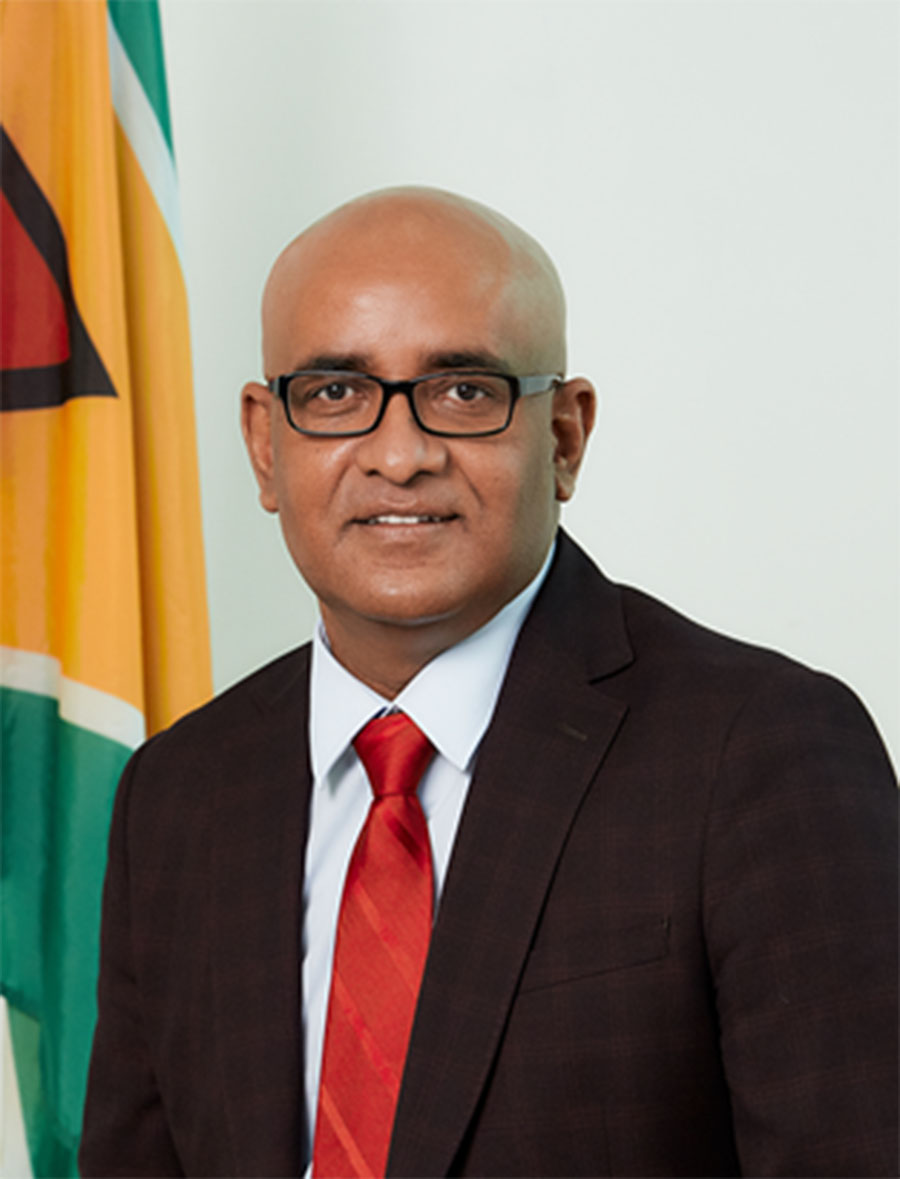-in meeting with public sector officials
Vice-President Bharrat Jagdeo has issued a stern warning to the heads and accounting officers of public sector that government will be enforcing strict compliance with procurement rules and any departure from these regulations would not be tolerated, a release from the Department of Public Information (DPI) stated.
These remarks were made during a high-level meeting held at the Arthur Chung Conference Centre on Tuesday where Jagdeo stressed that the government prioritizes transparency and accountability in the execution of public projects.
His admonition comes amid growing concerns about corruption in the procurement sector.
The meeting brought together key figures, including Permanent Secretaries, Regional Executive Officers, and senior officials from agencies such as the Guyana Police Force, Guyana Defence Force, Guyana Geology and Mines Commission (GGMC), Guyana Sugar Corporation (GuySuCo), the Guyana Water Inc. (GWI), and the Guyana Power and Light (GPL) Inc.
The Vice-President however, acknowledged the challenges agencies face in managing the country’s “unprecedented” Public Sector Investment Programme (PSIP). But while commending public servants for successfully implementing the majority of projects, despite resource constraints, he expressed concern over issues in procurement practices.
He noted that 95 per cent of public projects are completed successfully and in compliance with procurement rules and criticised the Parliamentary Opposition for focusing “disproportionately” on the problematic five per cent, “making it appear as though failures are widespread.” He reiterated that the administration wants a fair procurement system and emphasised the need to address the five per cent of problematic contracts that fall short of required standards.
Jagdeo confirmed that there have been some deviations from the Procure-ment Act and the Standard Bidding Document despite the time and effort spent developing these advanced legislative frameworks. To counter this, he stressed that all public officials must familiarise themselves with the Procure-ment Act and Standard Bidding Documents, and fully comply with the rules.
Further, on the rare occasion, should the need arise to depart from the Standard Bidding Docu-ments, it should only occur with prior approval from the National Procurement and Tender Administration Board (NPTAB). He also disclosed that in the future, officials will be evaluated on their adherence to these guidelines.
Jagdeo also criticised instances where there has been deliberate slowing down of project implementation by some agencies, which leads to a year-end rush and is then used to justify sole sourcing of contracts. He called for early planning and execution, ensuring that NPTAB grants sole sourcing approvals only under exceptional circumstances, which must be clearly detailed to Cabinet. The Vice President made it clear that this practice must be curtailed.
Additionally, he touched on the potential for the manipulation of the three-quote system, warning that it must be used sparingly and within a controlled environment to preserve the integrity of the bids.
Concern was also expressed about the increasing use of restricted tendering by some ministries, often without valid justification. While restricted tendering may be necessary for complex projects, Jagdeo cautioned that it should not be used to favour specific contractors and called on NPTAB to closely scrutinise any requests for such tenders.
Vigilant
Regarding reports of corruption, Jagdeo condemned instances where bribes are being solicited to expedite payments for completed work, urging agency heads to remain vigilant. He emphasised that such practices ultimately damage the government’s reputation, as those paying bribes often blame the administration for these corrupt activities. To mitigate this problem, he urged accounting officers to be more vigilant.
The Vice President also referred to cases where several members from one family may have companies registered with them, and they all bid for contracts. Acknowledging that this may be difficult to identify, he urged accounting officers to be wary of this and ensure vigilance.
He then moved on to contracts that include unnecessary items, such as vehicles and computers, which inflate costs by tens of millions, and warned that such additions were not allowed and disclosed that where discovered these have been corrected. For the future, he urged that accounting officers ensure that contracts focus solely on essential project deliverables and not be used for the comfort of their own agencies.
Jagdeo then addressed the misuse of contingency sums set aside for projects, stressing that these resources are subject to approval and are not for the discretionary use of engineers, nor are contractors entitled to it. He disclosed that several engineers have been fired for approving substandard projects that led to government payments for work not completed.
The Vice President then turned his attention to the inflation of bills and warned that this practice would not be tolerated. He also voiced concerns about conflicts of interest in some Regional Democratic Councils (RDCs) and other government agencies, where officials have private companies and are bidding within the agencies where they work. He made it clear that those wishing to be contractors must leave their government positions, as this conflict of interest will be scrutinised closely.
Agency heads must engage in better contract administration and stress the importance of penalties for late or shoddy work, including the imposition of liquidated damages, Jagdeo charged, while making it clear that the government will hold agency heads responsible for these issues.
Looking forward, Jagdeo stressed the importance of data-driven decision-making in the public sector to enhance policy effectiveness and combat misinformation. He urged public servants to rely on facts and analysis when making decisions.
Senior Minister in the Office of the President with responsibility for Finance, Dr Ashni Singh, also participated in the discussions, which included early preparations for the 2025 budget. Jagdeo underscored that transparency and accountability would remain central to the government’s priorities as it continues to execute its ambitious public sector investment plans.
The meeting concluded with Jagdeo reaffirming the government’s dedication to delivering its commitments to the people while maintaining a strict watch on procurement practices to prevent inefficiencies and corruption within the system, the release added.





